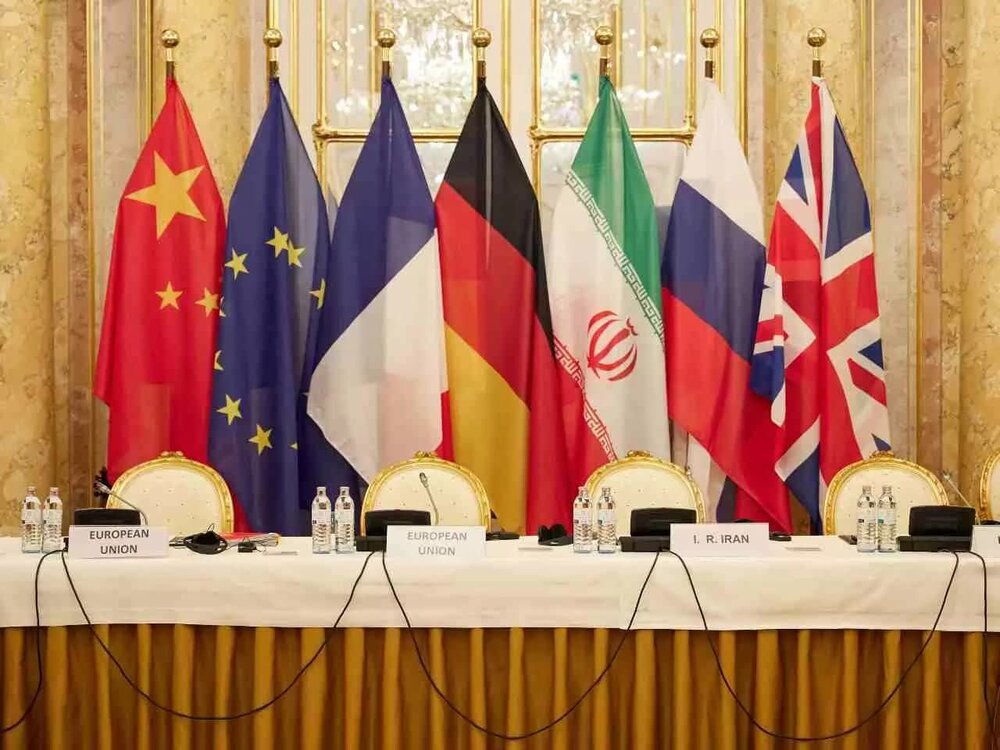White smoke emission from Vienna chimney hinges on Western flexibility

TEHRAN – With the talks in Vienna at a critical juncture after months of painstaking negotiations, the West seems to be in need of making political decisions to ensure the success of the talks.
The lead negotiators in Vienna have said in unison that the talks have reached a critical point. For instance, Enrique Mora, deputy head of the EU foreign apparatus who coordinates the Vienna talks, has said that the talks are nearing their end but key issues remain unresolved.
“#JCPOA #ViennaTalks are at a crucial moment. We are nearing the end after ten months of negotiations. The result is still uncertain. Key issues need to be fixed. But all delegations are fully engaged. Intense work in Coburg,” Mora said on Twitter.
It’s not clear which issues have not been hammered out yet. But press reports suggest that there are currently disagreements over a number of issues that need political decisions from the West, particularly the United States.
The Qatari newspaper Al-Arabi Al-Jadeed reported on Tuesday that the most important remaining issues mostly center around the scope of sanctions relief and the way to lift the sanctions in addition to other issues pertaining to disagreements between Iran and the International Atomic Energy Agency (IAEA).
Citing sources familiar with the talks, the newspaper said the U.S. is still insisting on some sensitive sanctions that, if not lifted, would lessen Iran’s benefits from any deal.
The sanctions in question need political decisions by the Biden administration.
The U.S. is yet to make such decisions and therefore a deal remains unlikely in the foreseeable future. This comes at a time when heads of delegations are preparing for a break for consequential consultations in capitals. Before the current round of talks, Iran had made all the necessary political decisions to move ahead with the talks. Therefore, it's unlikely that the upcoming break would result in a change in Iran’s decisions.
Nour News, a news website close to Iran’s Supreme National Security Council, has confirmed this amid reports that Iran’s chief negotiator, is returning to Tehran.
The news website said on Twitter, “The continuation of the presence of Iran’s chief negotiator in Vienna or his return to Tehran won’t bring about change in Iran’s principled positions which have been made available to the negotiating team through an accurate and comprehensive instruction. Unlike the western side, the Iranian delegation is powerful, authorized, and determined.”
Iranian Foreign Minister Amir Hossein Amir Abdollahian also hinted that Iran has done its part in terms of making decisions and that the remaining issues are not subject to negotiation.
“We are now close to a deal. [But] there are some issues that are our red lines,” the Iranian foreign minister said in an interview with Euronews.
The Iranian foreign minister said Iran has shown flexibility in the talks and now it’s the West’s turn to show flexibility.
“Now is the time for initiative and flexibility on the part of the West. We think that if the Western side wants to be realistic about what is going on at the negotiating table in Vienna today, we can reach a final agreement in less than a few hours,” he said.
He added, “Therefore, in our opinion, the timing is in the hands of the western side and depends on the realism and initiative of the western side.”
Nour News said there is a long way to reaching a deal. “Due to the lack of agreement on some important issues, there is still a long way to go to reach a final agreement, in #ViennaTalks. The West should not expect #Iran to agree to an agreement that does not serve its interests by ignoring its red lines,” it said on Twitter.
It added, “The Western parties in #ViennaTalks emphasize the imminence of the agreement and the limited time. They seek to insinuate that the #UnitedStates is fully prepared for an agreement, but #Iran is not willing to agree.”
As things stand, Iran is unlikely to let the Vienna talks result in a deal that would cross its red lines.
At the same time, the odds of the collapse of the talks remain high due to the lack of political decisions on the Western side.
Of course, this is not to say that the talks are doomed. But it highlights the sensitivity of the talks after nearly a year of intense negotiations. The West should step up to the plate and make the political decisions needed to push the talks a step closer to the finishing line. The white smoke the Vienna chimney yielded in terms of keeping Iran’s advanced centrifuges under seal inside Iran was one such step. But more is expected, especially with respect to the scope of sanctions relief.
Ali Shamkhani, Secretary General of Iran’s Supreme National Security Council, was apparently referring to this white smoke when he posted his “Sword of Damocles” tweet.
“Peaceful capability of #Iran's nuclear program must always remain like sword of Damocles above the heads of violators as a real guarantee for fulfillment of their obligations. After US withdrawal from #JCPOA in 2018, it was better to use this inherent guarantee more effective,” the top security official said.
